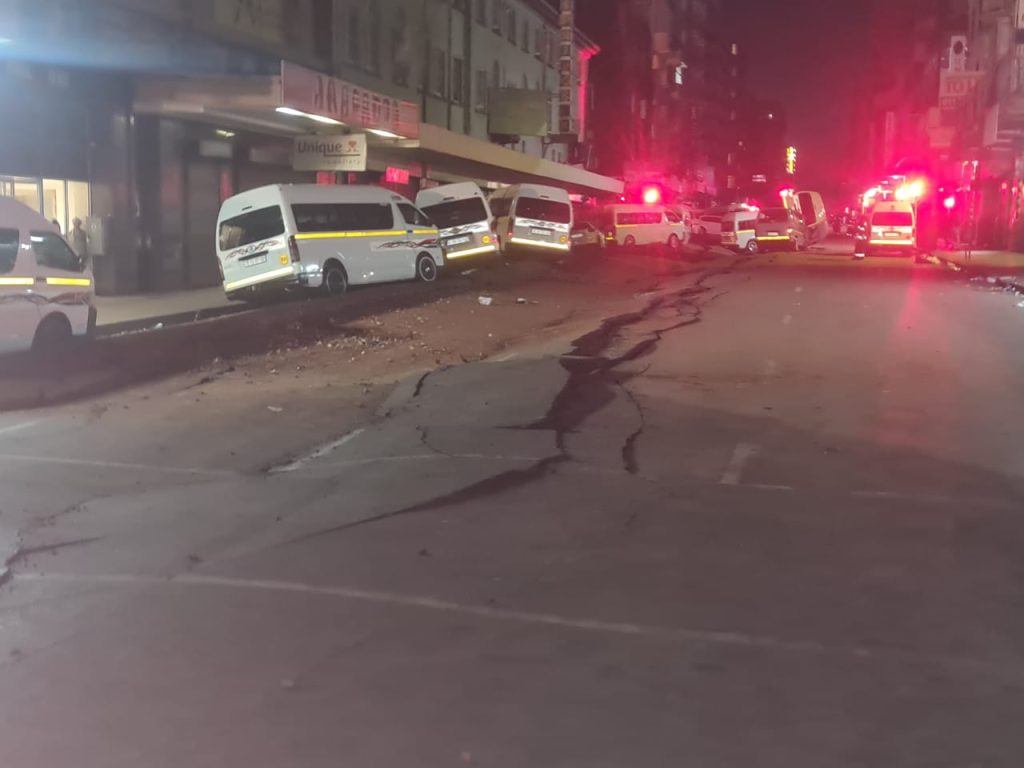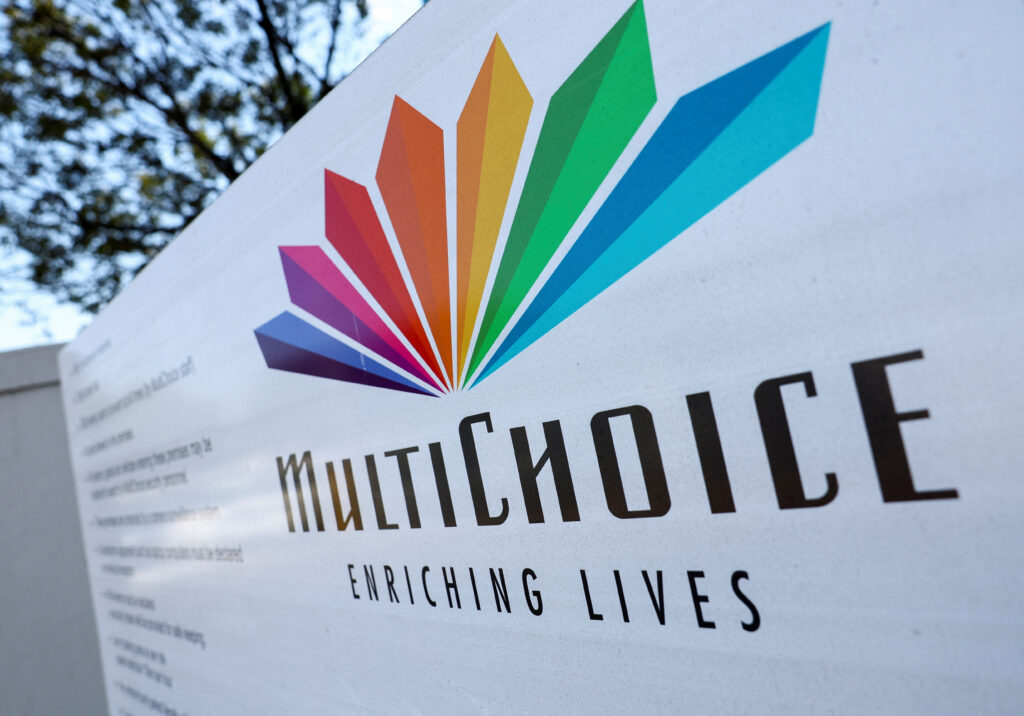You can also listen to this podcast on iono.fm here.
CIARAN RYAN: It’s time to start paying attention to what’s happening on the African continent. The African Development Bank is forecasting growth of more than 4% over the next two years, driven by massive investment in mining infrastructure and information and technology. And of course, the African middle class is exploding. That’s whether you’re talking about Kenya, Rwanda or Nigeria – yes, and even South Africa, despite our much lower growth forecasts.
This is clearly not the crisis-ridden continent that many believe it to be. The African Continental Free Trade Area has the potential to grow Africa’s GDP by 6% to 7% a year by 2030, by promoting regional trade and investment.
Well, joining us to discuss all this is Professor Lyal White, a faculty member at the Gordon Institute of Business Science, or Gibs.
Hi, Lyal. Thanks very much for your time. Perceptions of Africa are shifting for the better. What are the challenges that Africa faces in light of current global trends? I’m thinking particularly about the [US President Donald] Trump trade wars, for example. Also, is it fair to refer to Africa as a microcosm of what we see happening in terms of global dynamics?
LYAL WHITE: It’s wonderful to be with you. Thank you very much. Hello, everybody. I think the topic is a really interesting one right now.
We can talk a lot about the challenges confronted by Africa – the political economy, the socio-developmental challenges are well-known, we’ve had governance issues for decades in Africa.
And we seem to have thought – maybe 20 to 25 years ago, just as Africa entered probably the fastest growth decade on record – maybe things were going to be turning around.
You mentioned at the outset, just in terms of let’s call them linear growth rates, and collectively for Africa, that they’re looking quite positive, perhaps bullish in some areas. But 4-5% growth for a continent that is pretty much at a very low base will not be sufficient. We probably need a little bit more than that.
But I think therein lies the interesting story of Africa – that it’s no longer the ‘Africa rising’ or the ‘Africa falling’ narrative that we bought into so easily some 10 to 15 years ago. I think Africa is diverging quite a lot. There are a number of those economies that are growing, some are remaining kind of stagnant while others are falling by the wayside.
And sadly, you kicked off with a reference to Nigeria, to Rwanda, [and] some of the smaller economies, and also not necessarily the economies that are resource-rich in terms of those mineral metal and maybe oil potentials. Those are the ones that are demonstrating high levels of growth. There are others, like you mentioned the likes of Rwanda, they are growing.
In 2025, 12 of the world’s 20 fastest-growing economies will be in Africa, and they are all projected to grow in excess of 6%.
Yes, they are rather small and so the large economies like Nigeria and South Africa are almost the laggards in the African context.
But going back to your first question around how Africa is representing certain developmental, well, let’s call them trends that are taking place – a kind of a microcosm of what’s going on in the world. What do these geopolitical developments and trade wars mean for Africa?
I think herein lies an enormous opportunity. I often refer to it as the ‘opportunity of crisis’.
Ian Bremmer, a well-known political economist based in the United States, coined the phrase ‘opportunity of crisis’ in this particular context. But he really refers to the idea that major global crises – they could be pandemics, wars, economic collapses, climate change or climate disasters – but even technology, while they are deeply disruptive they also create a rare moment to transform and reform systems. And that systemic change is essentially what is needed in Africa.
We need a dramatic and a fundamental systemic and structural change in Africa to realise these growth opportunities. I do believe that the current dynamics in the world today present such an opportunity in the crises we are witnessing. We can talk a little bit about those.
But this microcosm of changing dynamics, of some of the most daunting challenges of our time – from climate change to pervasive inequality, to even the geopolitics – playing out in Africa are really presenting a unique opportunity for African countries.
CIARAN RYAN: There’s a lot of discussion about what is called ‘adaptive capacity’, and maybe you can explain what that is and how this can be leveraged in Africa to navigate the future. If you go to places like Kinshasa you see tremendous underdevelopment, underdevelopment everywhere. And yet there are pockets of development that are happening even in Harare, which was written off as a basket case – massive investment coming in there now from Asia and from the Middle East.
Clearly things are changing and opportunities are being recognised around the world.
LYAL WHITE: Yes, indeed. I think you’ve drilled into something that many investors or just Afro-enthusiasts overlook – these unique and sometimes seemingly very small niche areas of investment and opportunity or innovation on the African continent.
This adaptive capacity can be linked up with the enormous opportunity that lies in the future of, let’s call it, the African continent and the African population.
We are often reminded that Africa has this growing kind of youthful population. It’s no secret that the median age in Africa is somewhere around 19 years. In South Africa, incidentally, it’s closer to 27 years of age.
But that presents a massive opportunity alongside enormous challenges because a burgeoning youthful population is seeking not only education, but also looking for livelihoods, work, all the rest of it and opportunities.
What we are seeing, though, is that we do have a potentially highly productive large workforce.
By 2030 half of the number of individuals entering the workforce globally will be from Africa. That’s in just five years’ time, in 2030.
A similar number – if you bring demographics and urbanisation into the picture – by 2030, all of the fastest-growing cities in the world will be in Africa.
Yes, some of them are coming off a very low base, but this is what is very, very exciting.
I guess we’re not talking about these massive mega cities of Cairo to Lagos, to Nairobi, because those are somewhat congested.
We’ve seen second-tier cities, or what we often refer to as ‘next cities’ developing. I think therein lies an opportunity or a really exciting prospect.
You spoke a little about the African Free Trade Area, which is also maybe aligned with other outward-looking trade agendas. These ‘next cities’ are going to be geared up and they are being designed to do just that, to improve the productivity, to leverage off this adaptive or expansive capacity that lies in Africa.
And I think therein, something that we need to look at, is innovating in this space to find those areas, again going back to this ‘opportunity of crisis’ of disrupting the existing systems.
CIARAN RYAN: There are some examples of Africa actually leading the world, and one of them is mobile money. An example of that is M-Pesa in East Africa. It’s been an enormous success. There are other examples of African business or governments that have responded to crisis with innovation. You know, areas like health, fintech, education, governance. Tell us about some of these areas where Africa is a potential leader.
LYAL WHITE: I think these are the really exciting areas. That mobile money – or let’s call them ‘cashless transactions’ – is a pretty well-known story.
M-Pesa at one stage was one of the largest brands in Africa. Just incidentally, for the listeners that are not too familiar with this, M-Pesa is one of the products of Safaricom, which is linked to Vodafone and Vodacom.
But Safaricom is one of the largest companies in East Africa, a real pioneer or a great social innovator, even in that East African context. They championed these kinds of mobile money or cashless transactions nearly 17 years ago. It has grown and been adopted in countries around the world.
Now, alongside that, we’re looking in less-formalised settlements. Kibera, incidentally, is regarded as the largest slum in the world – or in Africa, certainly. That is based literally two kilometres from the high-end areas of Nairobi, and this is where the adaptive capacities have really, really taken place with great enthusiasm.
We’ve seen other value-added products kind of being launched on top of these platforms. Connectivity is key. And this is where we are seeing now – whether it be in Fiverr or even the Elon Musk Starlink – those sorts of innovations are unlocking market potential that we have never even heard of before.
I think one area that we have overlooked – well, let’s call it two areas that we have overlooked that are big, big, big, opportunities in the global context, might be in the areas of climate change; let’s call it food security or food integrity, and in renewables.
Do most people know, for example, in terms of solar potential, the greatest solar potential that we have on the planet right now is it is in the driest area of the world called the Atacama Desert, which is in the northern parts of Chile. It’s pretty inaccessible because of its geographical isolation in many respects, or geographical distance from other major centres.
But the second highest solar potential in the world happens to be on the West Coast of South Africa and up into Namibia – and that’s not such a far way away.
Can you imagine the knock-on effects and the value addition that can be created through that by building data centres and greater connectivity and attracting an alternative form of investment? So there are those types of things – solar potential, renewables.
And then what is also very, very exciting is what we’re going to be seeing around climate change, [which] obviously is going to impact Africa quicker and before most of the rest of the world. We have developed now, let’s call them, ‘resilient crops’ in the African context, which will deliver a certain type of food security, even though Africa hasn’t performed in terms of its food production. Still, most countries in Africa are net food importers.
But in light of climate change and the changes that are taking place, the type of food security that will evolve to food integrity is a real opportunity for a new form of agriculture and farming that we can perhaps adopt in the future of Africa.
CIARAN RYAN: Alright. Let’s talk now about Gibs and business schools generally. How are you sort of tailoring your programmes for this evolving landscape that we’ve been talking about, and the type of leadership that Africa is going to need?
LYAL WHITE: It’s been a long journey. Obviously exposure to other African countries, other African markets, is essential – and other African firms.
There are some very, very exciting innovative firms that happen not only to be based in South Africa. Of course, South Africa has very exciting companies and large companies that have expanded across the continent and around the world. But experience with those or exposure to those and case studies on those is one way.
Emerging into these countries and into these markets is something that we are quite actively involved in. I mean, just about every week I’m seeing groups going into markets in in Nairobi, Addis Ababa, Lagos, Accra. I’m off to Cairo next week for the Association of African Business School Events.
Cairo, for me, at the moment is a very exciting destination. Yes, it’s North Africa, maybe a little bit further apart from sub-Saharan Africa, but it’s really another very, very interesting investment destination.
So, apart from that, we are also partnering with our global engagements. It’s a very active part of the school. We have partnerships across the continent with the likes of Strathmore Business School in Kenya, Lagos Business School in in Nigeria, and then others like the American University of Cairo in Egypt – and a string of others.
I happen to serve on the board for the Association of African Business Schools, the chairman of which, incidentally, is also a South African from Henley Business School, Jon-Foster Pedley. And so we do champion this engagement between South Africa and the rest of the African continent.
In addition to this, we do encourage and drive research in our master’s programmes, the MBA, and the MPhil (Master of Philosophy). So there’s a lot of that type of work taking place. It is without a doubt a very, very exciting space. Students seem to love the exploration and getting to understand and grasp the realities in Africa, and also obviously the opportunities that lie ahead for themselves as individuals and for the future of their companies.
CIARAN RYAN: We’re going to leave it there. Thank you very much for your time. That was Professor Lyal White, a faculty member at Gordon Institute of Business Science.
Brought to you by the Gordon Institute of Business Science (Gibs).
Moneyweb does not endorse any product or service being advertised in sponsored articles on our platform.

 2 days ago
1
2 days ago
1






















 English (US) ·
English (US) ·